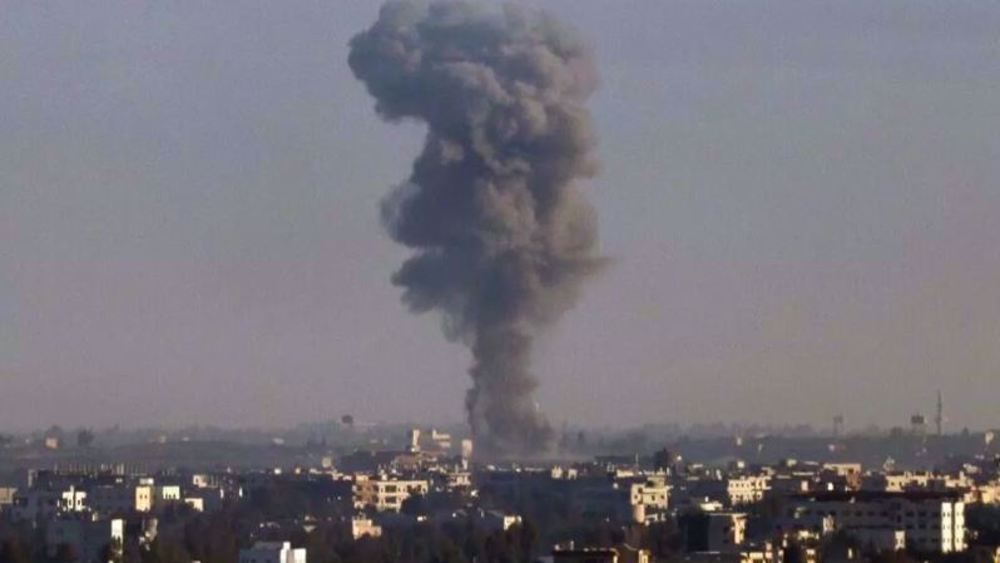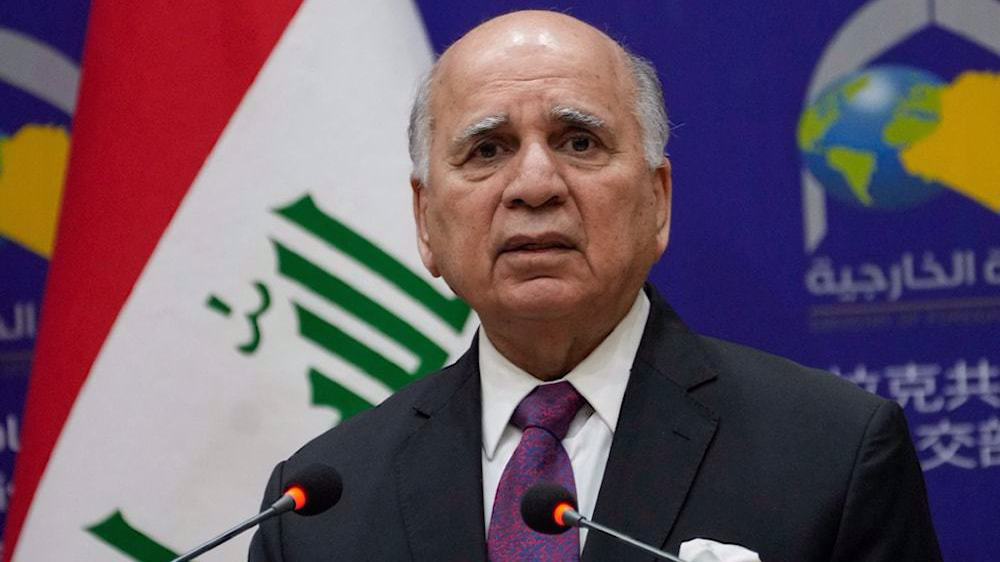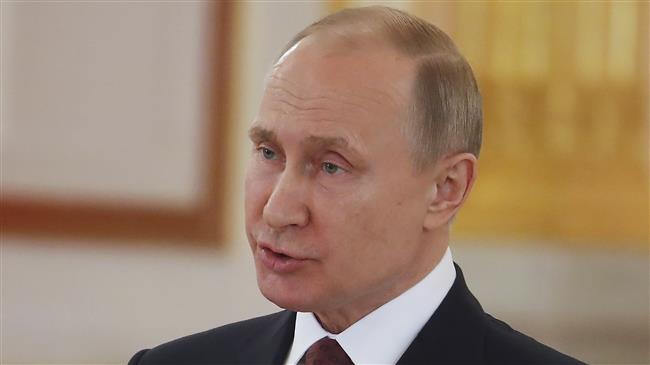Russia says may give Syria S-300, calls for urgent UN meeting
Following US, UK and French missile strikes against Syria, Russia calls for an emergency UN Security Council on the tripartite act on aggression and says it may consider supplying S-300 missile defense systems to the Arab state.
The Russian military’s Colonel-General Sergei Rudskoi said on Saturday that US actions in Syria are aimed at destabilizing the already fragile situation in the entire region, adding that S-300 could also be delivered to other countries as well besides Syria.
The Kremlin also said Russia has called for an emergency session of the UN Security Council over the assaults.
Attacks ‘targeted Syria’s chance for peace’
Earlier, Moscow warned against the repercussions of the missile strikes by the US and its allies on Syria early Saturday, saying the tripartite military attacks targeted the terrorism-riddled country’s chance for a peaceful future.
Russian Foreign Ministry spokeswoman Maria Zakharova took to Facebook to condemn the act of aggression, saying, “The capital of a sovereign government, trying for years to survive under terrorist aggression, has been attacked.”
“You have to be quite abnormal to attack Syria’s capital just at the moment when it had a chance for a peaceful future.”
Russia’s Ambassador to Washington Anatoly Antonov also warned of the consequences of such military actions.
He was the first Russian official to react after Washington, Britain and France launched coordinated missile attacks against Syria over the alleged attack in the town of Douma in the city’s countryside in the early hours of Saturday.
“Again, we are being threatened. We warned that such actions will not be left without consequences,” he tweeted on Saturday.
“Insulting the President of Russia is unacceptable and inadmissible,” he added. Vladimir Putin had outspokenly cautioned against an escalation as Washington and its allies were harping on about Damascus’ alleged use of chemical weapons.
Following an invitation from Damascus, inspectors from the Organization for the Prohibition of Chemical Weapons (OPCW) are expected to arrive in Syria over the weekend to investigate the reported attack.
The Syrian government surrendered its stockpiles of chemical weapons during a process monitored by the OPCW in 2014.
“A pre-designed scenario is being implemented,” the Russian envoy said. Moscow had, time and again, warned in the lead-up to the US-led attacks that foreign-backed militants could stage chemical strikes in order to pin it on Damascus.
“The US - the possessor of the biggest arsenal of chemical weapons - has no moral right to blame other countries,” he added.
‘OPCW mission being targeted’
Russia’s Foreign Affairs Committee Chair Konstantin Kosachyov, meanwhile, said the strikes were highly likely an attempt to hamper or block the OPCW’s mission.
He called the attacks an outrageous violation of international law and a groundless attack on a sovereign government.
The Russian Defense Ministry said that none of the Western strikes had hit areas near Russia’s air and naval bases.
“Not one of the cruise missiles released by the US and its allies entered the zone of responsibility of Russian air defenses protecting facilities in Tartus and Hmeimim,” the ministry said in a statement carried by the RIA Novosti state news agency, referring to the locations of the Russian outposts.
Legal questions
Britain, France and the US cited suspected Syrian chemical facilities to claim a "clear violation" of international law, but experts warned they were on dubious legal ground themselves in carrying out the unilateral action.
Moscow immediately demanded an emergency meeting of the UN Security Council, saying the US, France and Britain had violated "the UN charter and the norms and principles of international law."
Analysts agreed that in striking Syria without UN authorization, the United States, Britain, France were relying instead on a nebulous concept of "legal morality."
"The violation of conventions doesn't give you the right to use force," said Francoise Saulnier, legal director at the Doctors Without Borders aid group, which has a long history of intervening in humanitarian crises.
Under UN rules, military force against a foreign power is allowed under just three conditions: legitimate self-defense, at the request of the country where it would occur, or in case of a Security Council authorization.
Analysts say the move against Syria could open the door to the unilateral use of force in any number of situations.
"Legal morality is an absolute trap, because what's moral for you isn't for me," AFP quoted Didier Billion of France's Institute for International and Strategic Affairs as saying.
"What would give France and the US the right to bomb a state?" he said, dismissing their arguments as a "smokescreen."
For Patrick Baudouin, a lawyer with the International Federation for Human Rights in Paris, "it's breaking international law with the goal of ensuring it is respected."
"It's the idea that there is some sort of international humanitarian law based on a 'responsibility to protect'. But this isn't something laid down in international law."
Saulnier at Doctors Without Borders agreed that such notions were "empty concepts" that could backfire.
"What's dangerous is that the West, already waging a war against non-state actors in Syria, is risking an escalation toward international conflict in order to potentially get back to the negotiating table," she said.
But by trying to get around the established rules on using force, "we're liquidating the legal structures built since World War II," Saulnier said, warning of a return to "gunboat diplomacy."
Hamas thanks Iran, Resistance Front following achievement of ceasefire in Gaza
'Capitulation': Israeli officials and media concede Gaza defeat as truce unfolds
'Gaza has won': Social media users react to ceasefire with mix of relief, joy
Iran seeks South Korea’s assistance for AI, fiber-optic projects
VIDEO | Iran's 'Eqtedar' (Power) maneuver
Israel hits HTS military target in Syria for 1st time since fall of Assad
VIDEO | Press TV's news headlines
Israel has slaughtered 13,000 students in Gaza, West Bank













 This makes it easy to access the Press TV website
This makes it easy to access the Press TV website